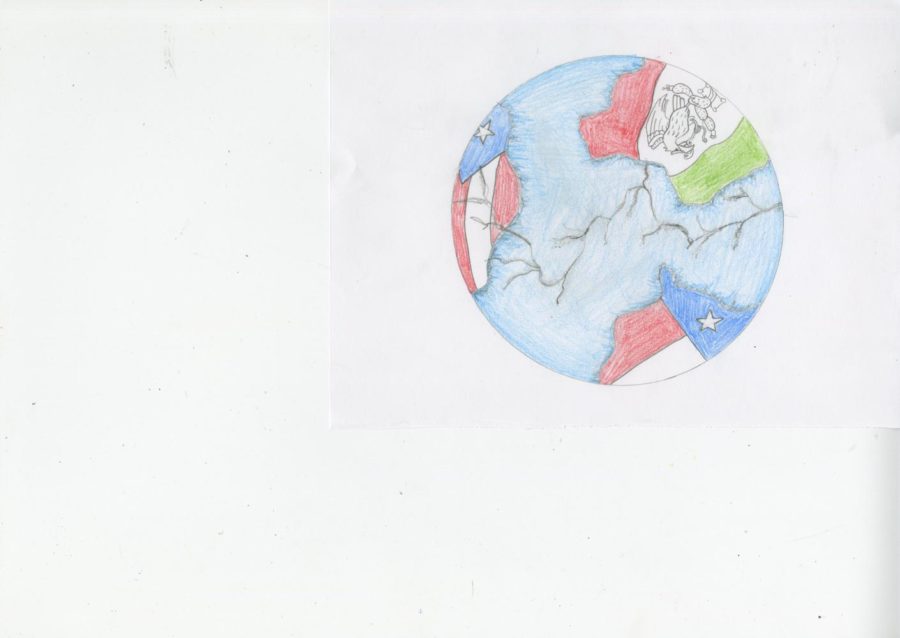Disaster response: then and now
In the wake of a series of historic natural disasters in North America, the Urban community has provided no forums educating students on the effects of natural disasters that have occurred since the start of school. Historically, Urban’s response has been a combination of student-driven fundraising and faculty lead forums which has provided students with a place to process, explore, and discuss events.
On September 6, The Urban School’s Community Outreach club raised just over 300 dollars to send to United Way, a charity aiding victims of Hurricane Harvey. The arrival of the hurricane brought extreme flooding to Texas on August 25 and significantly impacted industries.
Hurricane Harvey was only the first disaster to hit since school started in August. On September 10, Hurricane Irma hit with maintained 180 mph winds, setting a record for the most intense storm at its peak, according to the Washington Post. It impacted Florida and islands in the Caribbean. Ten days later, Hurricane Maria arrived in Puerto Rico, as the largest storm to hit the island since the San Felipe hurricane in 1928. The death toll and full extent of the damage are unknown. In Mexico, on September 7, an 8.1 earthquake hit Oaxaca, a state in Mexico. This was followed by a 7.1 earthquake that shook Mexico city, leaving 320 civilians dead and many homeless on September 19.
Reflecting on the bake sale, Catherine Silvestri (‘18), a co-leader of Community Outreach, said, “There were a lot more donations [than in past bake sales]… I think there were more donations because…the severity of the hurricane inspired people to donate and because we donated to a local organization in Houston rather than Red Cross, [people] knew the money would be going directly to victims of the hurricane.”
Although the club was able to respond quickly with aid to victims of Harvey, it has yet to send funds aiding the other natural disasters. Besides raising money, the other monumental piece of Urban response, forums, has been nonexistent in the weeks following the disasters.
Debbie Samake, a service learning teacher, said, “One thing that I have noticed in the natural disasters that have occurred since I was here, which has been 21 years, Urban has always done something. We have done bake sales and educate the community about what is going on.”
In 2005, Hurricane Katrina caused extreme flooding and high death toll, leaving many homeless and without resources. The storm displaced more than 1 million people according to The Data Center, an independent research organization in New Orleans. However, in addition to the loss, the government response was inadequate and left minorities living in areas with the highest risk, without aid. The New York Times writes, “Evacuation chaos and mostly unfounded panic over riots and violence made issues of race, poverty and government failures impossible to ignore.”
According to Samake, in addition to organizing a trip to Cathedral of Saint Mary of the Assumption to visit refugees who had been flown out, teachers also held forums on the disaster itself. Forums discussed the racial implications of the government’s political action and the extent of the disaster.
On September 30, in response to Hurricane Maria President Trump tweeted, “Such poor leadership ability by the Mayor [Carmen Yulín Cruz] of San Juan, and others in Puerto Rico, who are not able to get their workers to help. They…want everything to be done for them when it should be a community effort. 10,000 Federal workers now on Island doing a fantastic job.”
According to CNN, “While Trump and other administration officials have repeatedly lauded the federal government’s response to Maria, some have said that the administration has moved more slowly than it did in responding to the recent storms that battered Texas and Florida.” With millions without access to power or clean water, this reaction from the President should constitute some student discussion or forum.
Charlotte Worsley, Director of Student Life, said, “we tend focus on disasters if [they are] something that’s in the immediate area– how do we want to respond and all that– and [if] it’s something further out, [we instead stay] mindful of people’s families and [let] the students decide.”
Some students feel that there should be a space to process and explore these historic disasters in an academic setting. Will Hoppin (‘18) said, “I didn’t even really hear about the earthquakes in Mexico so I don’t think that [Urban] addressed it adequately… I think living in San Francisco there is a certain way to separate yourself from things that happen there because we aren’t really prone to a lot of natural disasters besides earthquakes… It would help to have some reminders.”
At the time of print, Worsley sent out a school-wide email stating, “I have read accounts of people living in these areas how important it is to take care of yourself while also reaching out to take care of others. Please remember that you have support at school if you need to talk with someone.”

